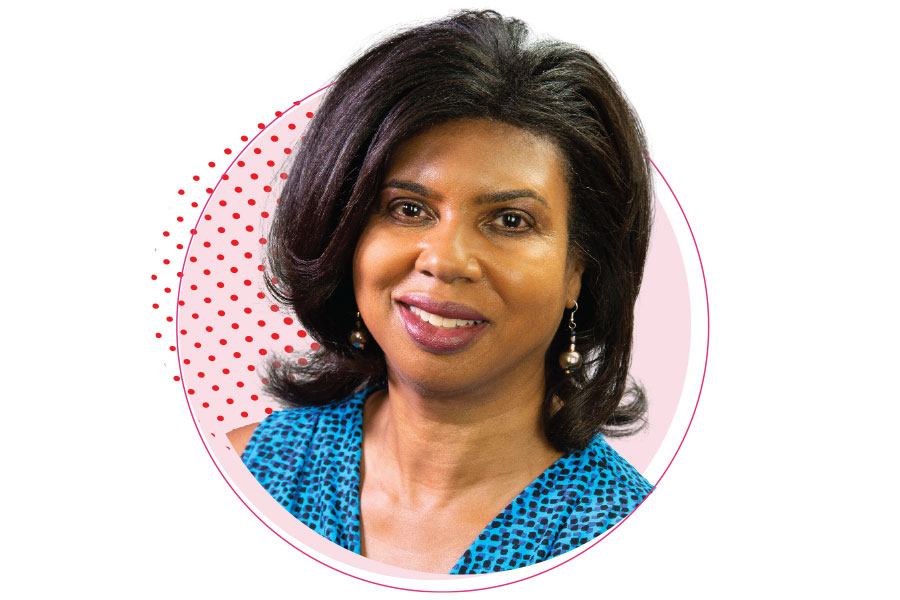A Blip in Your Life: A Boston Breast Cancer Survivor Story

After a routine mammogram, novelist Lisa Braxton underwent a long series of tests—including an ultrasound, breast MRI, and biopsy. The tests were grueling, but saved her life.
I had an appointment made to have a breast MRI and biopsy on my husband’s birthday, May 1, 2019. We spent that day at the imaging center. It was a cold, drizzly, gunmetal-gray day out. The rain was just spitting. I spent hours in the imaging machine, holding onto the panic butt on they give you, earplugs in my ears. I was praying the whole time with my eyes pressed shut: Please, please, please, God. Let me not have breast cancer.
The test was grueling. I was in the MRI machine for hours. They’d numbed my breasts; I could hear the biopsy machine making that whirring, drilling sound, and I was thinking, I cannot wait to get out of this thing. When they rolled me out, my back was killing me—you’re in there for so long with your arms stretched out in front of you. The surgeon who did the biopsy said, “I don’t like to let people wait around with false hope. Lisa, I want you to know that the area I saw had jagged edges around it. It looks like it’s cancer.”
I could not believe it. I’ve been such a health nut my entire life, and I never thought it would happen to me. I work out a lot—tennis, the gym, ice skating. When she told me it looked like breast cancer, I felt like I was floating over myself and the doctor in the exam room, watching the conversation.
Before I found out, I was thinking: The last thing I want to do is lose my hair. But once she said it was cancer, I said to myself, If I have to lose my hair, I’ll do it. Whatever it takes to stay alive. I asked, “Will I have to go through chemo?”
The surgeon, a small woman, said, “No, it’s tiny, Lisa. It’s maybe half a centimeter, the size of my pinky nail.”
When the hematology oncology specialist asked if I wanted to have a mastectomy, I opted out. I decided on a lumpectomy instead. I didn’t want something highly invasive. Partly because—in many instances in the past and sometimes even now-Black people are not always respected when it comes to our health. I know that things have changed, but still—we’re not always respected. I thought, Let me do the least invasive thing that seems reasonable to protect myself.
The doctor said that it had not gone to my lymph nodes; it was had not come in for my routine mammogram, we wouldn’t have found it for five or six years. The cancer would have grown so much, and that would have been the end. It’s so important to take care of yourself.
After I became an adult, when I’d go for my annual checkup, they’d ask, Do you do your monthly breast exams? I’d say no. I was afraid to find something. I was deathly afraid of breast cancer. Now, I look at life differently. I look at the blessing of life every day.
When I went in after my surgery some weeks later, my surgeon walked in and shook my hand and said, “Congratulations, Lisa. We like for cancer to be a blip in your life; it’s not your whole life. You can move on with the rest of your life.” That’s the way it’s been since.
This is a paid partnership between Think Pink and Boston Magazine


